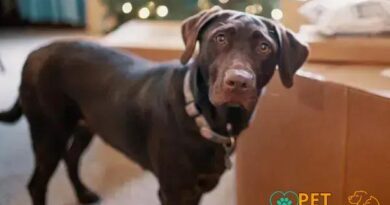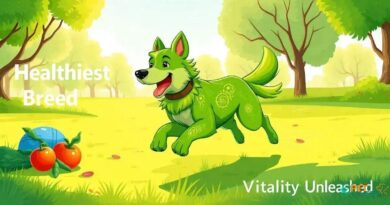What is Gastric Torsion
What is Gastric Torsion?
Gastric torsion, commonly known as bloat or gastric dilatation-volvulus (GDV), is a serious and potentially life-threatening condition that affects dogs. It occurs when the stomach fills with gas, food, or fluid and then twists on itself, leading to a blockage of the blood supply. This condition can escalate rapidly, causing severe pain and shock, and requires immediate veterinary intervention.
Symptoms of Gastric Torsion
Recognizing the symptoms of gastric torsion is crucial for prompt treatment. Common signs include a distended abdomen, excessive drooling, restlessness, and attempts to vomit without producing any material. Dogs may also exhibit signs of pain, such as whining or pacing. If you notice these symptoms, it is essential to seek veterinary care immediately, as time is of the essence in these situations.
Causes of Gastric Torsion
The exact cause of gastric torsion is not fully understood, but several factors may contribute to its development. Large and deep-chested breeds, such as Great Danes, Boxers, and Doberman Pinschers, are at a higher risk. Other contributing factors include rapid eating, excessive drinking, and vigorous exercise after meals. Understanding these risk factors can help dog owners take preventive measures.
Diagnosis of Gastric Torsion
Veterinarians diagnose gastric torsion through a combination of physical examinations, medical history, and imaging techniques such as X-rays. The physical exam may reveal a distended abdomen and signs of shock. X-rays are particularly useful in confirming the presence of gas in the stomach and its abnormal positioning. Early diagnosis is critical for successful treatment.
Treatment Options for Gastric Torsion
Treatment for gastric torsion typically involves emergency surgery to untwist the stomach and stabilize the dog. The veterinarian may also decompress the stomach by inserting a tube to release gas and fluid. Post-surgery, dogs may require hospitalization for monitoring and supportive care, including intravenous fluids and pain management. The prognosis depends on the severity of the condition and the speed of treatment.
Preventing Gastric Torsion
Preventive measures can significantly reduce the risk of gastric torsion in dogs. Feeding smaller, more frequent meals rather than one large meal can help. Additionally, using elevated feeding bowls and avoiding vigorous exercise immediately after eating may also be beneficial. Some veterinarians recommend a prophylactic gastropexy, a surgical procedure that tacks the stomach to the abdominal wall, especially for high-risk breeds.
Gastric Torsion vs. Other Conditions
It is essential to differentiate gastric torsion from other gastrointestinal issues, such as simple bloat or pancreatitis. While both conditions can cause abdominal discomfort and distension, gastric torsion is characterized by the stomach’s twisting and requires immediate surgical intervention. Understanding these differences can help pet owners respond appropriately to their dog’s symptoms.
Long-term Effects of Gastric Torsion
Dogs that survive gastric torsion may face long-term health effects, including a higher risk of recurrence. Regular veterinary check-ups and monitoring for any signs of gastrointestinal distress are crucial for these dogs. Owners should also be aware of any changes in their pet’s eating habits or behavior, as these may indicate underlying issues that need to be addressed.
When to Seek Veterinary Care
If you suspect your dog may be suffering from gastric torsion, it is vital to act quickly. Delaying treatment can lead to severe complications, including shock, organ failure, and even death. Always trust your instincts as a pet owner; if something seems off with your dog, do not hesitate to contact your veterinarian or an emergency animal clinic.



